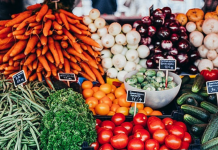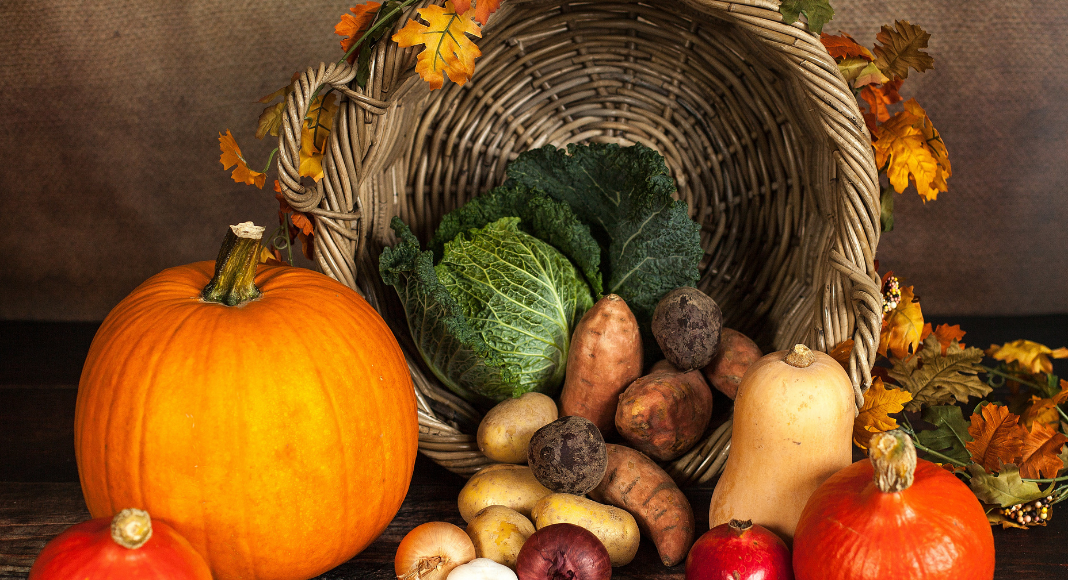Like most Americans, I love BACON. I love the way it smells and tastes. I love taking a big bite and hearing the snap between my teeth. I love the way it pairs so well with everything. It’s true, I love bacon. But my love affair with bacon ended three years ago.
It’s been more than 1,000 days since I said goodbye to pepperoni, chicken tenders, and bacon-wrapped filet mignon.
The Decision :: Why Consider Being Vegetarian
I’ve been an omnivore for most of my life. Tater tots and bacon. Chicken fingers and fries. Steak and potatoes. You see a trend here? In my late 20s, my body wasn’t working as efficiently as it had been when I was in college. My digestive decisions impacted my energy levels. The slices of pepperoni pizza I devoured correlated to my response time with my toddler. As a mom, I needed to take better care of my body, and switching to a more plant-based diet was part of the holistic shift.
Saying goodbye to steak is a little more complicated for us adults, especially living in the United States, where hamburgers and hotdogs are as much ingrained in our culture as baseball, football, and fireworks on July 4th. Sometimes we are so caught up in the familiarity and routine of it all that we don’t pause and ask ourselves why we do the things we do, like eat meat. But there are lots of reasons to go vegetarian :: health, morals, religion, cost, etc.
Additionally, as our daughter grew older, she became more inquisitive about the world around her. Around age 3, the “why” questions dominated our family discussions. One day she asked where the various food on her plate came from. She had lots of questions. So we scrambled for answers. While we didn’t go in to graphic details, we didn’t sugarcoat the facts. At three and a half she proclaimed herself a vegetarian.
Historically, the U.S. government has employed catchy campaigns and slogans to get Americans to buy more meat and dairy, spending more than $550 million. {THINK :: “Got Milk?” and “Pork, the Other White Meat”} On average, Americans eat 200 pounds of meat per year, which is more than any other nation. This high level of consumption correlates to Americans having triple the cancer rate, double the obesity, and twice the diabetes rate of the rest of the world.
Additionally, more than 51% of greenhouse gasses come from animal agriculture. Raising animals for food requires tons of resources :: land, energy, food and water. Factory farms in the U.S. produce nearly 500 million tons of manure each year, according to the Environmental Protection Agency. According to a United Nations report, raising animals for food generates more greenhouse gases than all the cars and trucks in the world combined.
If you’re looking for ways to save money, a plant-based shopping cart with help you pinch the pennies. Because meat accounts for 10% of food spending in the United States, eating fruits, vegetables and grains in place of meat will save you an average of $4,000 a year. And if those aren’t reason enough, a plant-based diet results in regularity. Eating more vegetables equates results in increasing the fiber in your diet. This results in less constipation and fewer instances of hemorrhoids.
If you’re looking for some blogs to follow for plant-based inspiration, here are a few to get you started:
And if you want to “beef-up” on your knowledge of food production, factory farming and the pharameuctical industry, here are some documentaries on Netflix to get you started ::
[note: Like most documentaries, these are prone to bias, so please do your research and consult your physician before making health decisions based on that information. ]
Cowspiracy: The Sustainability Secret {2014}
Vegucated {2011}
Forks Over Knives {2011}
Fat, Sick and Nearly Dead {2010}
Food, Inc. {2009}
Earthlings {2005}
{IMPORTANT:: these films contain mature content and aren’t appropriate for young viewers}.
[NOTE: Before making any big health decisions like going vegetarian, be sure to consult a health care professional.]
Any fellow vegetarians out there? What led you to make the switch to a plant-based diet?
















Couldn’t agree more! Thanks so much for the shout out. Plenty of deliciousness at my place 🙂